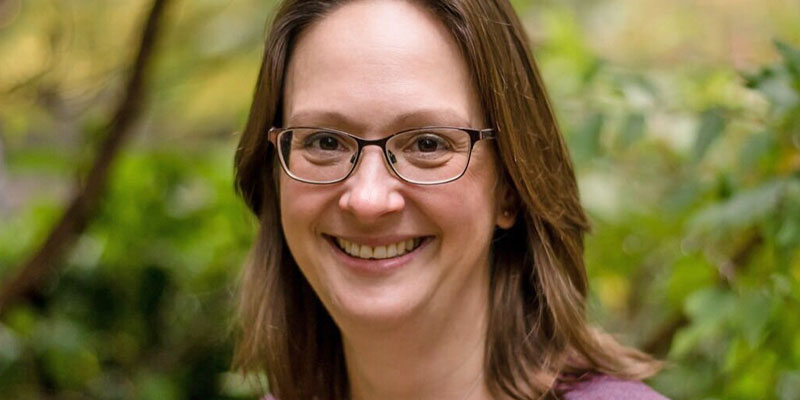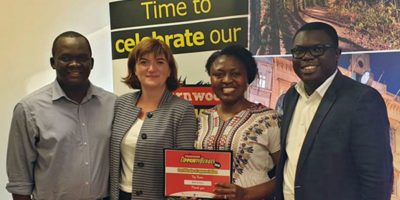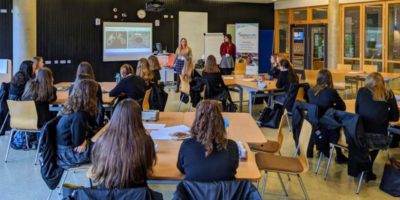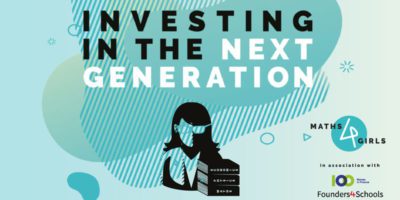Dr Sophie Carr is a mathematician and founder of Bays Consulting, combining her maths and engineering skills to support clients with pragmatic and robust solutions. Sophie is also a Chartered mathematician at the Institute of Mathematics and its Applications. She studied aeronautical engineering with French at undergraduate level at the University of Bath before gaining a Master’s Degree in applied mathematics and fluid mechanics at the University of Manchester, and finally doing a PhD in Bayesian Belief Networks at Cranfield University.
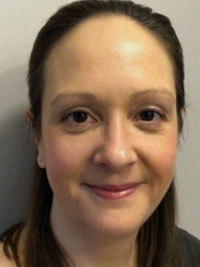
“Given that maths is just one puzzle after another, the truth is, if you work in maths, you’re going to be wrong nearly all time. That’s why when the maths does work and you solve the puzzle, it’s such an utterly joyous time!”
Approaching maths with an engineering perspective
I trained as an aeronautical engineer and started my career working in aircraft trials – I literally managed to get the job I’d dreamed of growing up and absolutely loved every single second of it.
Whilst working, I became interested in information overload which led to me studying part-time for a PhD in Bayesian Belief Networks, and my career path changed from engineering to mathematics.
I think I still approach projects with an engineering perspective, but use my statistics/data science knowledge. It’s easy to forget that working in maths is similar to engineering in that projects usually involve working in a multidisciplinary team, so I have actually managed to find a way of combining all my favourite parts of engineering and maths.
You can read more about my career path in my last Womanthology article.
Proud of our achievements as a company
I have founded my own consultancy in 2009, Bays Consulting, and it has been going very well. Bays has grown, we currently employ six people and are currently actively recruiting a new graduate statistician.
Growth has been steady, and I am incredibly proud of what the company has achieved. I can’t help but have a huge smile on my face when we’re all on a call – I only started the company for a few months, a couple of years at most, and then thought I’d get a ‘proper job’, but nearly 12 years on it has become an established company.
You don’t often get a chance to create something, and I’ve tried really hard to build a company where you don’t have to worry about how you work, but actually focus on what you produce. That means we don’t have ‘core hours’ – I support flexible working locations so people at Bays work a range of hours in locations from Norfolk to Flintshire.
A responsive and people-centred approach to the pandemic
As Bays has developed remotely, we had all the processes in place before COVID-19 hit, so moving online wasn’t an issue for us. At the start, the focus was two-fold – providing everything everyone in the company needed to be safe, and also talking to all our clients to make sure they were also safe, and understanding how we could best support them during the change to remote working and altered business needs/focus.
Practical examples of this in Bays was working out what each person needed and then seeing how this could be achieved, for example, employees with small children worked split hours before and after the need for childcare.
On a personal level, it was tiring as the days became long to make sure I kept in touch with everyone and on top of the ever-shifting pipeline of projects. Mix in the delights of also helping with home-schooling there were days when I swear, I’d blinked and the day had disappeared!
One other impact of COVID-19 was the inability to sort our gnarly maths problems together on a whiteboard or chatting about problems with coffee and jotting ideas down on paper. Ensuring we were able to keep innovating and not being stuck on a problem took time to figure out, but we solved it by focusing on people and listening to every idea people had. Never underestimate the power of a coffee and chat with no agenda.
Solving real-life problems
One of the great areas of my job is that I get to work on a huge range of projects that lets me use all of my maths knowledge.
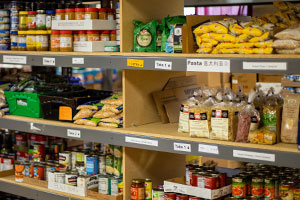
Another project that has been using all of Bays’ data science knowledge is such as damp, cold or excess heat in houses within a given area. Using wider maths skills means Bays has been supporting companies through survey analysis and network analysis to understand how stakeholders are working together.
Maths is all around
I think it’s really important to remember that everyone is inherently able to ‘do maths’. You use maths literally every time you cross the road – look left and right, listen, combine the information, and decide if it is safe to cross. That requires you to estimate and combine really complex information and you do that in your head.
Moving to the technology that supports our everyday lives, it’s easy to forget the maths that drives every single aspect of what we do – the algorithm that lets our mobile phones receive phone calls efficiently, the maths underpinning rapid searches on the internet, how insurance premiums are calculated.
Then there is the maths of living – which packet is the best value for money or what does a positive test result really mean?
It was this area of maths I focused on when I participated in the Great Big Internet Math Off, which I won, and became the World’s Most Interesting Mathematician.
Here is the final match I had to face to win this competition:
https://aperiodical.com/2019/07/the-big-internet-math-off-the-final-sameer-shah-vs-sophie-carr/
It’s absolutely fine to be wrong
What unites all mathematicians is a love of solving puzzles and, if you enjoy solving puzzles, realising you’re wrong and trying again is just an inevitable part of getting an answer.
Given that maths is just one puzzle after another, the truth is, if you work in maths, you’re going to be wrong nearly all time. That’s why when the maths does work and you solve the puzzle, it’s such an utterly joyous time! It’s absolutely fine to be wrong and it’s just a case of thinking about why something hasn’t worked and trying something different and just repeating this process until you realise you’re smiling.
Andrew Wiles, who solved Fermat’s Last Theorem, talks about this process:
“Perhaps I could best describe my experience of doing mathematics in terms of entering a dark mansion. One goes into the first room, and it’s dark, completely dark. One stumbles around bumping into the furniture, and gradually, you learn where each piece of furniture is, and finally, after six months or so, you find the light switch. You turn it on, and suddenly, it’s all illuminated. You can see exactly where you were.”
Quoted BBC documentary by S. Singh and John Lynch: Fermat’s Last Theorem. Horizon, BBC 1996.
Therefore, if you want to challenge the stereotype, start by getting people to solve puzzles and realise even the best mathematicians know it is going to take time.
What needs to be done to keep girls studying maths
I think one thing we can do is introduce mathematicians in school who show the breadth of mathematicians in the world so that everyone can see themselves in the world of mathematics. This is also important to show that becoming a mathematician is a viable career and can open up doors to all sorts of opportunities you might never have thought.
Another great way is to show people the range of mathematicians online who talk about what they do and how they have progressed their career. At Bays, we offer work experience and summer jobs to let people see what working in maths really means and we do school outreach to show what ‘women in maths and data science’ literally looks like.
Next steps for Bays
I’m very excited about the fact that Bays is opening up its first-ever office in Guildford in June (in fact the whole company is excited).
The company has never had a base before, so we’ll be building an office culture as well as making sure that anyone who chooses to remain home-based feels as involved in the company as they have been so far.
We’re also going to be continuing our work to develop new services which is an exciting time as we get to work on the maths and coding which deep down is what we really, really love doing.
https://www.linkedin.com/in/sophiecarrbays/
https://twitter.com/sophiebays

